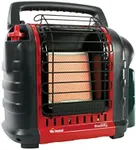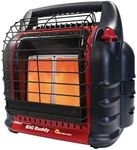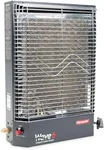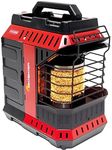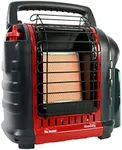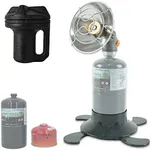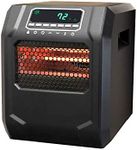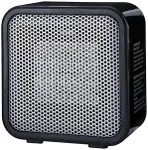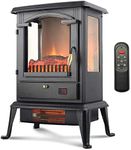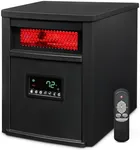Buying Guide for the Best Camping Tent Heaters
Choosing the right camping tent heater can make your outdoor experience much more comfortable, especially during colder months. When selecting a heater, it's important to consider factors such as safety, efficiency, and suitability for your specific needs. Here are some key specifications to help you make an informed decision.Type of HeaterCamping tent heaters come in various types, including propane, butane, electric, and catalytic heaters. The type of heater is important because it affects how the heater operates and its suitability for different camping conditions. Propane and butane heaters are portable and provide strong heat but require proper ventilation. Electric heaters are safe and easy to use but need a power source. Catalytic heaters are efficient and safe for indoor use but may not provide as much heat. Choose a type based on your camping environment and available resources.
Heat Output (BTUs)Heat output, measured in British Thermal Units (BTUs), indicates how much heat the heater can produce. This spec is crucial because it determines how effectively the heater can warm your tent. Heaters with lower BTUs (1,000-3,000) are suitable for small tents or mild conditions, while those with higher BTUs (4,000-9,000) are better for larger tents or colder weather. Consider the size of your tent and the expected temperature when choosing the right heat output.
Safety FeaturesSafety features are essential to prevent accidents and ensure a safe camping experience. Important safety features include automatic shut-off, tip-over protection, and oxygen depletion sensors. Automatic shut-off turns the heater off if it overheats, tip-over protection shuts it off if it falls over, and oxygen depletion sensors turn it off if oxygen levels drop too low. Prioritize heaters with these features to ensure safe operation, especially in enclosed spaces.
PortabilityPortability refers to how easy it is to transport and set up the heater. This spec is important because camping often involves moving gear and setting up in different locations. Lightweight and compact heaters are easier to carry and fit into your camping gear. Look for heaters with handles or carrying cases for added convenience. Choose a heater that balances portability with the necessary heat output and safety features for your needs.
Fuel EfficiencyFuel efficiency measures how long the heater can run on a given amount of fuel. This spec is important because it affects how often you need to refuel and how much fuel you need to carry. Efficient heaters can run longer on less fuel, making them more convenient and cost-effective. Check the heater's runtime on a full tank or battery charge and compare it to your camping duration. Choose a heater with good fuel efficiency to minimize refueling and carrying extra fuel.
Noise LevelNoise level refers to how much sound the heater produces while operating. This spec is important because a noisy heater can disturb your sleep and the tranquility of the camping environment. Heaters with lower noise levels are more pleasant to use, especially at night. Look for heaters with quiet operation or noise-reducing features. Choose a heater with an acceptable noise level to ensure a peaceful camping experience.
